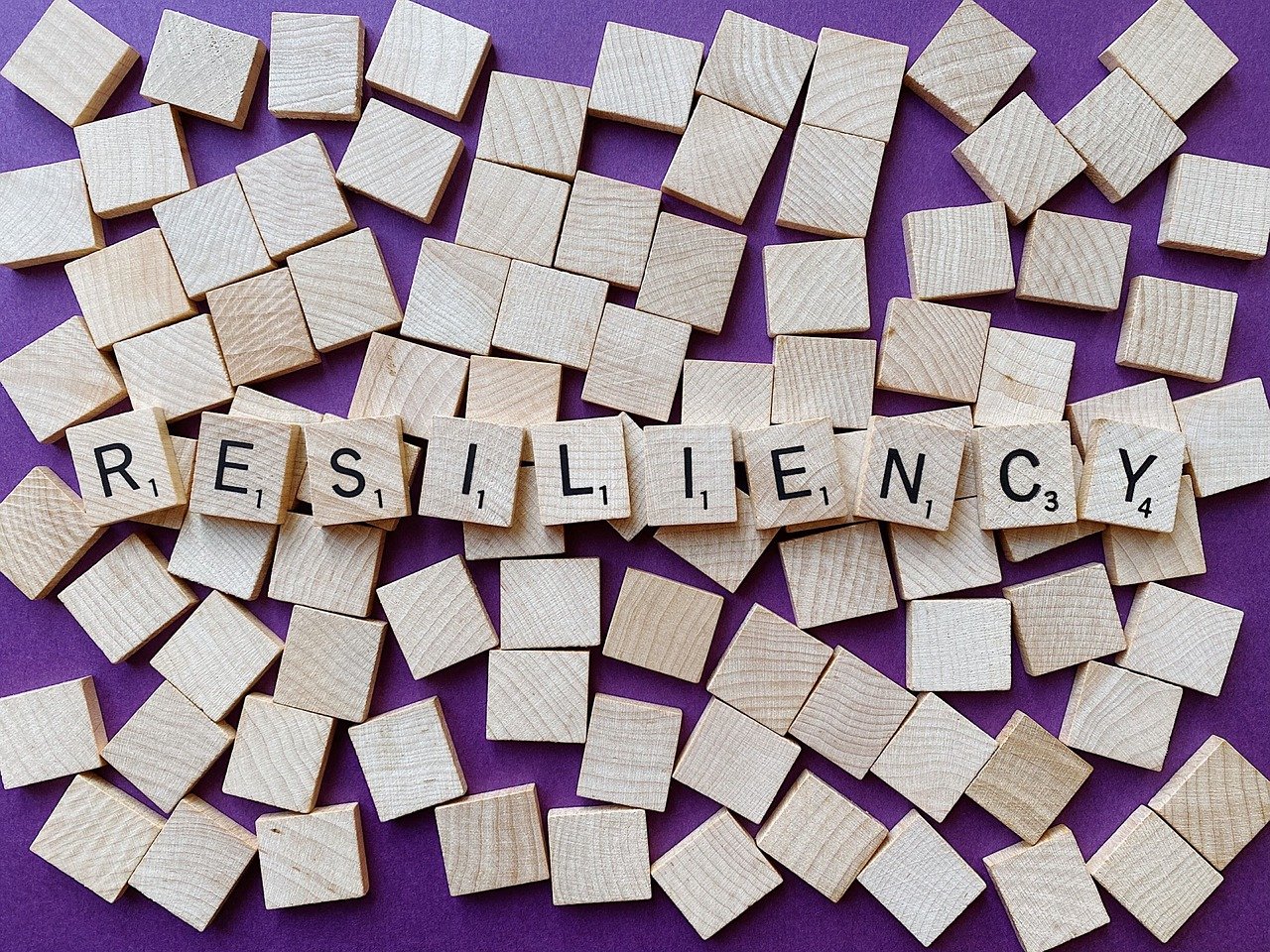How Resilience Helps in Combatting Clinical Depression?
In today's fast-paced world, clinical depression has become an all-too-common challenge that many people face. However, one of the most powerful weapons in this battle is resilience. But what exactly is resilience? Think of it as your mental rubber band—it's all about your ability to stretch and bounce back from life's tough moments. Resilience is not just about enduring hardships; it’s about growing through them. It serves as a protective factor, allowing individuals to navigate the stormy seas of mental health challenges with a sense of hope and strength. This article will explore the vital role of resilience in combating clinical depression, highlighting its significance, practical strategies to cultivate it, and the profound positive impact it can have on mental health recovery.
Resilience is often defined as the ability to recover quickly from difficulties. It’s like having a safety net that catches you when you fall, allowing you to get back up and keep going. The importance of resilience cannot be overstated, especially when it comes to mental health. Individuals who possess strong resilience are often better equipped to cope with stress, adapt to change, and overcome obstacles. They are more likely to see challenges as opportunities for growth rather than insurmountable barriers. In the context of clinical depression, resilience acts as a buffer, reducing the likelihood of experiencing severe depressive episodes and promoting a quicker recovery.
Research has shown a significant relationship between resilience and clinical depression. Higher levels of resilience can lead to better emotional regulation and effective coping strategies. Imagine resilience as a shield that protects you from the arrows of negativity and despair that can come with depression. When you cultivate resilience, you’re essentially fortifying your mental defenses. This not only reduces the risk of depressive episodes but also enhances your overall emotional well-being. Those who are resilient tend to experience fewer symptoms of depression and are more likely to seek help when needed, ultimately leading to a healthier lifestyle.
Several factors contribute to building resilience, including genetics, environment, and personal experiences. Understanding these factors can help individuals identify areas to strengthen their resilience against depression. It’s important to note that resilience is not a fixed trait; it can be developed over time. By recognizing the elements that influence resilience, you can take proactive steps to enhance your ability to cope with life's challenges.
Research suggests that genetics play a role in resilience. Some individuals may be genetically predisposed to have a higher capacity for resilience, allowing them to cope better with stress and adversity. This genetic component doesn’t mean that those with lower resilience are doomed; it simply indicates that some people may have a head start. Understanding this can empower individuals to take charge of their mental health and seek out strategies that foster resilience.
The environment significantly influences resilience. Supportive relationships, community resources, and a nurturing atmosphere can enhance one’s ability to withstand mental health challenges. Think of your environment as the soil in which your resilience grows. If the soil is rich and nourished, your resilience can flourish. On the other hand, a toxic environment can stifle growth and make it harder to bounce back from adversity. Cultivating a positive environment filled with encouraging relationships can be a game-changer in the fight against clinical depression.
Effective strategies can be employed to foster resilience. Just like building muscle, developing resilience requires consistent effort and practice. Here are a few practical approaches:
- Mindfulness: Practicing mindfulness can help you stay grounded and present, reducing stress and anxiety.
- Cognitive-Behavioral Techniques: These techniques can help you challenge negative thoughts and develop healthier thinking patterns.
- Social Support: Building a network of supportive friends and family can provide you with the encouragement you need during tough times.
By integrating these strategies into your daily life, you can significantly strengthen your resilience against depression.
Mindfulness practices are powerful tools for enhancing resilience. They help you cultivate awareness and acceptance, allowing you to manage your emotions more effectively. When you engage in mindfulness, you’re essentially training your brain to respond to stressors in a healthier way. This can lead to improved emotional regulation and a reduction in symptoms of clinical depression.
Engaging in mindfulness practices offers numerous benefits, including:
- Increased Self-Awareness: Mindfulness helps you become more aware of your thoughts and feelings, allowing you to respond rather than react.
- Reduced Anxiety: Regular mindfulness practice has been shown to lower anxiety levels, which can be particularly helpful for those struggling with depression.
These benefits contribute to greater resilience, enabling individuals to face life's challenges with a more balanced perspective.
Incorporating mindfulness into your daily routines can be transformative. Here are a few tips to get started:
- Start small: Begin with just a few minutes of mindfulness practice each day.
- Choose a quiet space: Find a peaceful environment where you can focus without distractions.
- Be consistent: Aim to practice mindfulness at the same time every day to establish a routine.
By practicing mindfulness consistently, you can enhance your resilience and overall mental well-being, helping you combat clinical depression more effectively.
Q: What is resilience?
A: Resilience is the ability to recover from difficulties and adapt to stress and adversity.
Q: How does resilience help with depression?
A: Resilience helps individuals manage stress, regulate emotions, and develop healthier coping strategies, which can reduce the risk of depressive episodes.
Q: Can resilience be developed?
A: Yes, resilience can be developed through various strategies, including mindfulness practices, cognitive-behavioral techniques, and building supportive relationships.

Understanding Resilience
Resilience is often described as the ability to bounce back from adversity, but it’s so much more than that. It’s like a mental rubber band, stretching and bending under pressure but never breaking. This quality is crucial, especially when faced with challenges like clinical depression. Understanding resilience means recognizing its importance in our lives and how it acts as a protective shield against the storms of mental health issues.
At its core, resilience is about adaptation. It’s the process through which individuals can not only endure hardships but also emerge from them stronger and wiser. Think of it as a muscle; the more you use it, the stronger it becomes. This is why cultivating resilience is essential for anyone, particularly those who are grappling with the shadows of depression. By building resilience, you create a buffer that can help you manage stress and recover more quickly from setbacks.
One of the most fascinating aspects of resilience is that it’s not a fixed trait. It can be developed and strengthened over time. This means that even if you feel overwhelmed by life’s challenges right now, there’s hope. You can learn to bounce back more effectively. But how does this work? Resilience involves a combination of emotional intelligence, social support, and coping strategies. Let’s break it down further:
- Emotional Intelligence: Understanding and managing your emotions is key. Resilient individuals are often more in tune with their feelings and can navigate them more effectively.
- Social Support: Having a network of friends, family, or community can provide the encouragement needed during tough times. It’s like having a safety net that catches you when you fall.
- Coping Strategies: Developing healthy ways to cope with stress, such as problem-solving or seeking help, can greatly enhance resilience.
In essence, resilience is a dynamic process influenced by various factors, including our experiences, relationships, and mindset. It’s about seeing challenges as opportunities for growth rather than insurmountable obstacles. This shift in perspective can dramatically change how we approach life’s difficulties. So, the next time you face a setback, remember that resilience is your ally, ready to help you navigate through the storm.
Ultimately, understanding resilience is the first step in harnessing its power to combat clinical depression. By recognizing its significance, we can take proactive steps towards building our own resilience, paving the way for a healthier mental state and a brighter future.

The Link Between Resilience and Depression
Have you ever noticed how some people seem to bounce back from life's challenges while others struggle to get back on their feet? This phenomenon is often rooted in resilience, a key factor that can significantly influence our mental health, particularly when it comes to conditions like clinical depression. Resilience is not just about enduring hardship; it’s about adapting and thriving despite it. So, how does this relate to depression? Well, research has shown that individuals with higher levels of resilience tend to experience fewer depressive episodes and can manage their emotional responses more effectively.
To put it simply, resilience acts as a buffer against the negative impacts of stress and adversity. When faced with life’s inevitable challenges, resilient individuals are more likely to employ effective coping strategies. This means they can regulate their emotions better, which can lead to a reduction in depressive symptoms. For instance, someone who is resilient might approach a setback at work with a problem-solving mindset, whereas someone with lower resilience might spiral into negative thoughts and feelings of hopelessness. This difference in perspective can determine whether a person experiences a depressive episode or emerges from the situation with newfound strength.
Moreover, resilience is not a static trait; it can be developed over time. Factors such as supportive relationships, a positive self-image, and effective coping strategies all contribute to building resilience. Let’s consider a few key ways in which resilience and depression are linked:
- Emotional Regulation: Resilient individuals are better at managing their emotions, which helps them avoid falling into the depths of depression.
- Coping Strategies: Higher resilience often leads to healthier coping mechanisms, such as seeking support or engaging in problem-solving, rather than resorting to avoidance or substance use.
- Positive Outlook: Resilient people tend to maintain a more optimistic view of life, which can mitigate feelings of despair associated with depression.
In summary, the link between resilience and depression is profound. By fostering resilience, individuals can not only protect themselves against the onset of depression but also enhance their overall emotional well-being. The journey to resilience is personal and unique for everyone, but understanding this connection is the first step toward a healthier, more fulfilling life.

Factors Influencing Resilience
When we think about resilience, it’s essential to recognize that it doesn't just spring up out of nowhere. It's more like a garden that requires the right conditions to flourish. Several factors contribute to building resilience, and understanding these can help individuals identify areas to strengthen their mental fortitude against challenges like clinical depression. Let's explore some of the key influences that shape our ability to bounce back from adversity.
First and foremost, genetics plays a significant role in resilience. Research suggests that some people may be genetically predisposed to handle stress better than others. This means that our biological makeup can either give us a head start or present challenges in developing resilience. For example, certain genetic markers are associated with lower levels of anxiety and better emotional regulation. However, it’s crucial to remember that while genetics can set the stage, they don’t dictate the entire performance. It's like having a talented musician; without practice, they won’t reach their full potential.
Next, we can't overlook the impact of environmental factors. The surroundings we grow up in, including our family dynamics, community support, and access to resources, can significantly influence our resilience. For instance, individuals raised in nurturing environments with strong social networks tend to develop better coping skills. On the contrary, those who face adversity without adequate support may struggle to bounce back. Think of it as a tree: if it’s planted in rich soil with plenty of sunlight and water, it’s more likely to grow tall and strong compared to one that’s in rocky, barren ground.
Moreover, personal experiences also shape our resilience. Life events, whether positive or negative, contribute to our overall ability to cope with stress. For example, overcoming a significant life challenge can bolster one’s resilience, as it builds confidence and equips individuals with coping strategies for future difficulties. In contrast, repeated exposure to trauma without proper support can erode resilience, making it harder to manage stress and increasing the risk of mental health issues.
To sum it all up, resilience is influenced by a blend of genetic, environmental, and experiential factors. Recognizing these influences allows individuals to take proactive steps in nurturing their resilience. Whether it’s seeking supportive relationships, engaging in self-care practices, or even exploring therapy, there are numerous ways to cultivate a stronger, more resilient self.

Genetic Influences
When we talk about resilience, it’s easy to think of it as something purely shaped by our environment or personal experiences. However, the truth is that play a significant role in our ability to cope with stress and adversity. Just like a tree that bends with the wind, some people are naturally more flexible and resilient due to their genetic makeup.
Research has shown that certain genes are linked to how we respond to stress. For instance, variations in the serotonin transporter gene (5-HTTLPR) can affect an individual's mood and emotional resilience. This gene is crucial because serotonin is a neurotransmitter that helps regulate mood, and its imbalance is often associated with clinical depression. Therefore, individuals with a particular genetic predisposition might find themselves more susceptible to depressive episodes when faced with life's challenges.
Additionally, studies have indicated that genetic factors can influence the production of neurotrophic factors, such as Brain-Derived Neurotrophic Factor (BDNF). BDNF is essential for the survival and growth of neurons, and it plays a critical role in learning, memory, and emotional regulation. Higher levels of BDNF are associated with greater resilience, suggesting that those with favorable genetic profiles may have a biological advantage when it comes to bouncing back from adversity.
However, it’s essential to remember that genetics is just one piece of the puzzle. While our genetic predispositions can set the stage for how we handle stress, they do not determine our fate. Environmental factors and personal choices can significantly influence how our genetic traits are expressed. For example, someone with a genetic tendency towards lower resilience can still cultivate strength through supportive relationships and positive experiences.
In summary, while genetics undeniably influences resilience, it is not the end of the story. Understanding the interplay between our genes and our environment can empower us to take active steps towards building resilience, regardless of our genetic starting point. By recognizing these influences, we can better appreciate our unique journeys and the diverse paths we take in combatting clinical depression.
- Can resilience be developed over time? Yes, resilience can be cultivated through various strategies, including mindfulness, social support, and cognitive-behavioral techniques.
- Are there specific genes linked to depression? Yes, certain genetic variations, such as those in the serotonin transporter gene, have been associated with susceptibility to depression.
- How does the environment affect resilience? A supportive environment, including relationships and community resources, can significantly enhance a person's ability to cope with stress.
- Is mindfulness effective for everyone? While mindfulness can benefit many, its effectiveness can vary based on individual preferences and experiences.

Environmental Factors
When we talk about resilience, it’s crucial to recognize the significant role that play in shaping our ability to cope with life's challenges, especially in the context of clinical depression. Imagine resilience as a plant; it needs the right conditions to thrive. Just like a plant flourishes in nutrient-rich soil, individuals flourish in supportive environments. These environments can include everything from family dynamics and friendships to community resources and societal support systems.
Supportive relationships are often the backbone of resilience. When individuals have a network of friends, family, or mentors who encourage and uplift them, they are more likely to develop the emotional strength needed to face adversity. On the other hand, a toxic or unsupportive environment can hinder resilience, making it difficult for individuals to bounce back from setbacks. For instance, consider a person who is constantly criticized at home versus someone who receives love and encouragement. The former may struggle with self-worth and coping, while the latter may find it easier to navigate through tough times.
Furthermore, community resources play a pivotal role in enhancing resilience. Access to mental health services, support groups, and educational programs can provide individuals with the tools they need to manage stress and adversity effectively. For example, community centers that offer mental health workshops can equip individuals with coping strategies and foster a sense of belonging, which is essential for building resilience.
Additionally, socio-economic factors can significantly influence resilience. Individuals from lower socio-economic backgrounds may face more barriers, such as limited access to healthcare, education, and social services. This lack of resources can make it challenging to cultivate resilience. Conversely, those with more resources often have better access to supportive environments that promote mental well-being.
In summary, environmental factors are not just background noise in the story of resilience; they are integral to the narrative. By fostering supportive relationships and enhancing community resources, we can create an ecosystem that nurtures resilience, empowering individuals to combat clinical depression more effectively.

Developing Resilience Strategies
Building resilience is not just a one-time effort; it’s an ongoing journey that requires commitment and practice. Just like training a muscle, the more you work on your resilience, the stronger it becomes. So, how do we go about developing these essential resilience strategies? Here are some effective approaches that can be woven into your daily life to help foster a more resilient mindset.
One of the most powerful tools for enhancing resilience is mindfulness. Mindfulness is all about being present in the moment and acknowledging your thoughts and feelings without judgment. This practice can help you gain better control over your emotions, making it easier to navigate the turbulent waters of life. By regularly engaging in mindfulness exercises, such as meditation or deep-breathing techniques, you can create a mental buffer against stress and anxiety, which are often precursors to clinical depression.
Another vital strategy is to develop a strong support network. Surrounding yourself with positive, supportive people can make a world of difference. Think of your support network as a safety net; when you fall, they’re there to catch you. This network can include family, friends, or even support groups where you can share experiences and coping strategies. The key is to foster these relationships actively, as they can provide emotional comfort and practical advice when times get tough.
Additionally, cognitive-behavioral techniques can be incredibly effective in building resilience. These techniques focus on changing unhelpful thought patterns and behaviors that may contribute to feelings of hopelessness or despair. For instance, when you catch yourself thinking negatively, try to challenge that thought. Ask yourself, “Is this thought really true?” or “What evidence do I have to support this?” By reframing your thoughts, you can shift your perspective and reduce the impact of negative emotions.
To put these strategies into action, consider creating a personal resilience plan. This plan can be a simple document where you jot down your goals, the strategies you want to implement, and the support you have available. You might even include a checklist of activities that help you feel grounded and connected, such as:
- Daily mindfulness meditation
- Regular check-ins with friends or family
- Journaling your thoughts and feelings
- Engaging in physical activities like yoga or walking
By having a tangible plan, you can hold yourself accountable and track your progress over time. Remember, resilience is not about avoiding challenges; it’s about facing them head-on with the tools and strategies you’ve developed. It’s like being a warrior in your own life, equipped with the right armor to withstand the battles of mental health.
Lastly, don't underestimate the power of self-compassion. Being kind to yourself during tough times can significantly enhance your resilience. Instead of beating yourself up for perceived failures, treat yourself as you would a dear friend. Acknowledge your struggles, but also celebrate your victories, no matter how small. This balance is crucial in fostering a resilient mindset and can help you bounce back more effectively from setbacks.
In conclusion, developing resilience strategies is a multifaceted approach that combines mindfulness, social support, cognitive-behavioral techniques, and self-compassion. By integrating these elements into your life, you can build a robust defense against clinical depression and enhance your overall mental well-being.
Q: What is resilience?
A: Resilience is the ability to bounce back from adversity and challenges, allowing individuals to cope effectively with stress and setbacks.
Q: How can mindfulness improve resilience?
A: Mindfulness helps improve emotional regulation and self-awareness, enabling individuals to manage stress and anxiety better, which are key components in building resilience.
Q: Why is a support network important for resilience?
A: A strong support network provides emotional comfort, practical advice, and a sense of belonging, which can significantly enhance an individual's ability to cope with life's challenges.
Q: Can anyone develop resilience?
A: Yes! Resilience can be developed and strengthened over time through consistent practice of various strategies and techniques.

Mindfulness and Resilience
Mindfulness is more than just a buzzword; it’s a powerful practice that can significantly enhance resilience, especially for those grappling with clinical depression. But what exactly is mindfulness? At its core, mindfulness involves paying attention to the present moment without judgment. It’s about observing your thoughts, feelings, and sensations, allowing you to connect with your inner self. This connection can be a game-changer in how you manage stress and adversity.
So, how does mindfulness relate to resilience? Well, when you practice mindfulness, you develop a greater awareness of your emotional states. This heightened awareness allows you to recognize negative thoughts and feelings without becoming overwhelmed by them. Imagine standing on the shore, watching the waves crash against the rocks. Instead of being swept away by the tide, mindfulness teaches you to observe the waves with curiosity and detachment. This perspective shift can help you respond to challenges with a calm and collected mindset, rather than reacting impulsively.
Research has shown that engaging in mindfulness practices can lead to improved emotional regulation. This means that individuals who practice mindfulness are better equipped to manage their emotions, leading to a reduction in symptoms associated with clinical depression. For instance, a study found that participants who practiced mindfulness regularly reported lower levels of anxiety and depressive symptoms compared to those who did not. The emotional resilience gained through mindfulness can serve as a buffer against the stresses of daily life, making it easier to cope with challenges.
Additionally, mindfulness fosters a sense of self-compassion. When you're mindful, you're more likely to treat yourself with kindness during tough times. Instead of engaging in self-criticism, you learn to accept your imperfections and acknowledge that everyone faces struggles. This self-compassion is a crucial component of resilience. It allows you to bounce back from setbacks without being weighed down by guilt or shame.
To reap the benefits of mindfulness, it’s essential to incorporate it into your daily life. You don’t need to set aside hours for meditation; even a few minutes a day can make a difference. Here are some simple ways to get started:
- Mindful Breathing: Take a few minutes each day to focus on your breath. Inhale deeply, hold it for a moment, and exhale slowly. This practice can ground you and bring you back to the present.
- Body Scan: Lie down comfortably and mentally scan your body from head to toe. Notice any areas of tension and consciously relax them.
- Mindful Walking: Take a walk in nature, focusing on the sights, sounds, and sensations around you. This can be a refreshing way to practice mindfulness.
Incorporating these practices into your routine can enhance your resilience, helping you navigate the ups and downs of life with greater ease. Remember, the journey to resilience is not about avoiding difficulties but rather about learning how to face them with courage and grace.

Benefits of Mindfulness
This article explores the vital role of resilience in overcoming clinical depression, highlighting its significance, strategies to cultivate it, and the positive impact on mental health recovery.
Resilience is the ability to bounce back from adversity. This section delves into its definition, importance, and how it serves as a protective factor against mental health challenges like clinical depression.
This section discusses the relationship between resilience and clinical depression, illustrating how higher resilience can lead to better emotional regulation and coping strategies, ultimately reducing the risk of depressive episodes.
Several factors contribute to building resilience, including genetics, environment, and personal experiences. Understanding these can help individuals identify areas to strengthen their resilience against depression.
Research suggests that genetics play a role in resilience. This subsection explores how hereditary factors can impact an individual’s ability to cope with stress and adversity.
The environment significantly influences resilience. This part examines how supportive relationships and community resources can enhance one’s ability to withstand mental health challenges.
Effective strategies can be employed to foster resilience. This section outlines practical approaches, such as mindfulness, cognitive-behavioral techniques, and social support, to strengthen resilience against depression.
Mindfulness practices are powerful tools for enhancing resilience. This section explains how mindfulness can improve emotional regulation and reduce symptoms of clinical depression.
Engaging in mindfulness practices offers numerous benefits that significantly contribute to building resilience. First and foremost, mindfulness enhances self-awareness. By tuning into our thoughts and feelings without judgment, we begin to understand our emotional triggers. This understanding allows us to respond to stressors more effectively rather than reacting impulsively.
Moreover, mindfulness has been shown to reduce anxiety levels. When we practice being present and focused, we often find that our worries about the future diminish. This decrease in anxiety can lead to a more balanced emotional state, making it easier to cope with the challenges that life throws our way. To illustrate this, consider the following table that summarizes key benefits:
| Benefit | Description |
|---|---|
| Increased Self-Awareness | Understanding thoughts and feelings to respond better to stress. |
| Reduced Anxiety | Decreasing worries about the future through present-moment focus. |
| Improved Emotional Regulation | Better control over emotions, leading to healthier coping strategies. |
Additionally, mindfulness fosters emotional regulation. When we practice mindfulness, we learn to observe our emotions without becoming overwhelmed by them. This skill is crucial in managing depressive symptoms, as it allows individuals to navigate their feelings with a sense of calm and clarity. Instead of being swept away by negative emotions, mindfulness encourages a more balanced perspective.
Incorporating mindfulness into daily life can be transformative. Imagine starting your day with a few minutes of deep breathing or a short meditation session. This simple act can set a positive tone for the rest of the day, helping you approach challenges with a resilient mindset. By integrating mindfulness practices into your routine, you not only enhance your resilience but also promote overall mental well-being.
- What is mindfulness? Mindfulness is the practice of being present and fully engaged in the moment, without judgment.
- How does mindfulness help with depression? Mindfulness helps individuals become more aware of their thoughts and feelings, allowing for better emotional regulation and reduced anxiety.
- Can anyone practice mindfulness? Yes, mindfulness can be practiced by anyone, regardless of their background or experience.

Incorporating Mindfulness into Daily Life
In today's fast-paced world, where distractions lurk around every corner, can feel like a daunting task. However, the beauty of mindfulness is that it doesn't require a complete lifestyle overhaul. Instead, it invites you to embrace small, intentional moments throughout your day. Imagine taking a deep breath before diving into your work, or savoring your morning coffee as if it were a fine wine. These simple practices can transform mundane routines into opportunities for mindfulness.
One effective way to integrate mindfulness is by setting aside a few moments each day for dedicated practice. This could be as short as five minutes of focused breathing or a brief meditation session. You might think, "But I don’t have time for that!" The truth is, we all have time; it’s about prioritizing those moments. You might even consider using a timer to carve out specific intervals during your day dedicated to mindfulness.
Additionally, mindfulness can be woven into your existing activities. For instance, while walking, try to focus on the sensation of your feet touching the ground, the sounds around you, or the rhythm of your breath. This practice not only grounds you in the present but also enhances your awareness of the world. You can also practice mindfulness during meals by chewing slowly and appreciating the flavors and textures of your food. It's about being fully present in the moment, which can significantly reduce stress and anxiety.
To help you get started, here are some practical tips to incorporate mindfulness into your daily life:
- Morning Rituals: Start your day with a few minutes of deep breathing or stretching. This sets a positive tone for the day ahead.
- Mindful Commuting: Whether you’re driving or using public transport, try to focus on your surroundings, the sounds, and your breath instead of scrolling through your phone.
- Digital Detox: Set specific times to unplug from devices. Use this time to engage in a mindful hobby, read a book, or simply enjoy nature.
- Gratitude Journaling: At the end of each day, jot down three things you’re grateful for. This practice shifts your focus towards positivity and mindfulness.
Incorporating these practices doesn’t have to be overwhelming. Start small, and gradually build your mindfulness muscle. Remember, it’s about progress, not perfection. As you continue to weave mindfulness into your daily life, you'll likely notice a profound shift in your mental well-being. You'll find that you respond to challenges with greater ease and clarity, making it easier to navigate the ups and downs of life, especially when facing the shadows of clinical depression.
Q: What is mindfulness?
A: Mindfulness is the practice of being fully present in the moment, aware of your thoughts, feelings, and surroundings without judgment.
Q: How long should I practice mindfulness each day?
A: Even just 5-10 minutes a day can be beneficial. The key is consistency and making it a part of your routine.
Q: Can mindfulness really help with depression?
A: Yes, research shows that mindfulness can improve emotional regulation, reduce stress, and enhance overall mental well-being, which can be particularly helpful for those struggling with depression.
Q: Do I need special training to practice mindfulness?
A: No, mindfulness can be practiced by anyone. There are many resources available, including apps and guided meditations, to help you get started.
Frequently Asked Questions
- What is resilience?
Resilience is the ability to bounce back from challenges and adversity. It’s like a rubber band that stretches but doesn’t break; it returns to its original shape after being pulled. This quality is crucial in maintaining mental health, especially when facing issues like clinical depression.
- How does resilience help with clinical depression?
Resilience plays a vital role in combatting clinical depression by enhancing emotional regulation and coping strategies. When individuals are more resilient, they are better equipped to handle stress and adversity, which can lead to fewer depressive episodes and a more positive outlook on life.
- What factors influence resilience?
Several factors contribute to resilience, including genetics, environmental influences, and personal experiences. For instance, having a supportive family or community can significantly bolster one’s ability to cope with challenges, while personal experiences can shape how one reacts to stress.
- Can mindfulness improve resilience?
Yes! Mindfulness practices are powerful tools for enhancing resilience. By promoting self-awareness and emotional regulation, mindfulness helps individuals manage stress and anxiety, ultimately leading to greater resilience against mental health challenges.
- How can I incorporate mindfulness into my daily life?
Incorporating mindfulness into your daily routine can be simple. You can start with activities like meditation, deep breathing, or even mindful walking. Setting aside just a few minutes each day to practice mindfulness can significantly enhance your overall mental well-being and resilience.
- Is resilience something that can be developed?
Absolutely! Resilience is not a fixed trait; it can be developed over time. By engaging in practices like mindfulness, seeking social support, and working on cognitive-behavioral techniques, individuals can strengthen their resilience and better manage life's challenges.



















